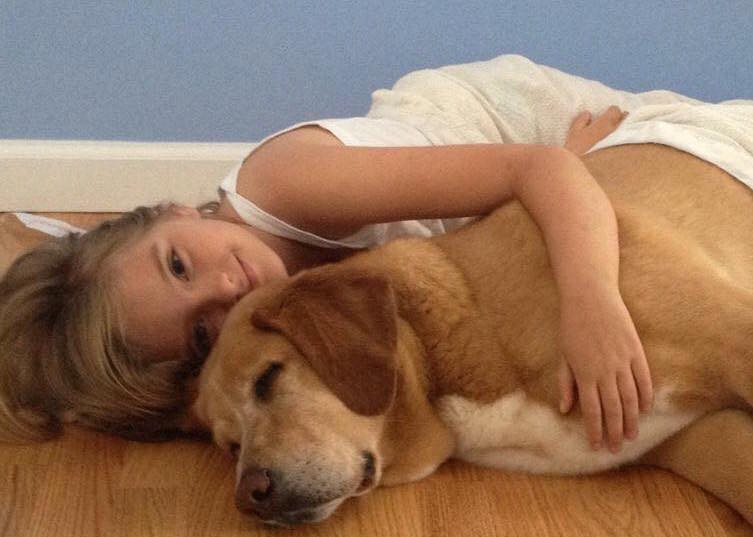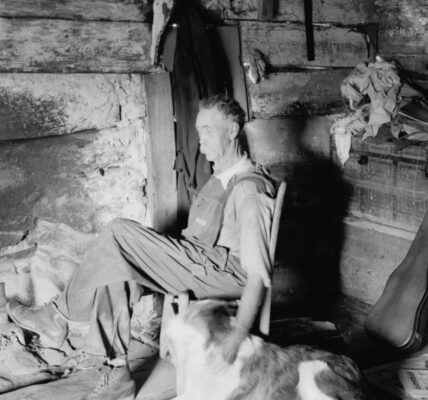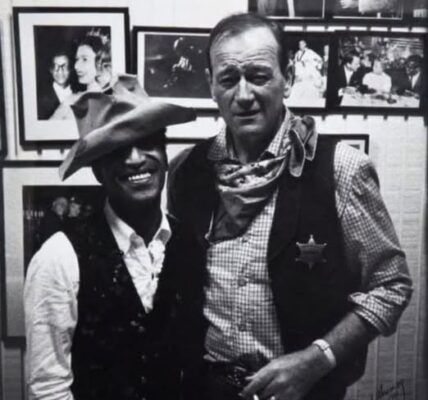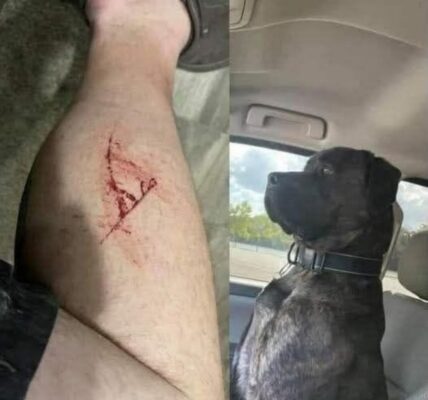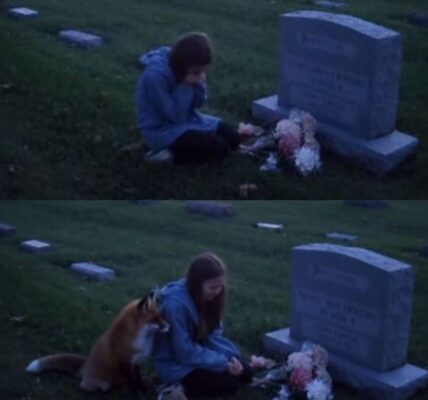
“How much did Fisher cost?” one of my kids asked not long ago. $350? $400? $575?
It’s not a simple answer.
On paper, he cost $350. That was the adoption fee in April 2005—he came neutered, vetted, and transported. A bargain, really. But by May, the real price had started to show itself.
What’s a Mother’s Day brunch for twelve? Because Fisher ate it all. Right off the dining room table.
But then he’d flop down on the floor, let the baby crawl over him, and lay perfectly still so she could rest her head on his stomach while drinking her bottle. Maybe that evened things out.
The underground fence? $2000. Training? $99 for “unlimited lessons,” though most of those were for me. We gave him the whole yard—an acre and a half—but if I dared cross the street, he came right after me. Shock or no shock. Eventually, I just stayed in the yard and waved at neighbors from the fence line.
Two dozen cupcakes carefully baked for school? Gone, wrappers and all. More cakes followed. Bread loaves never stood a chance. I learned to store things on top of the fridge or in the microwave, but Fisher always stayed one step ahead.
Dozens of Barbies lost their limbs during his teething stage. He chewed through the Christmas stocking my great-grandmother had made, just to get at the chocolate surprise inside.
And yet he saved me the price of a watch—he kept time for me. He told me when breakfast and dinner should be served, when to let him out and back in, and when it was bedtime. Every night, he’d start up the stairs, pause, and wait for me to follow. He set the rhythm of our household.
He cost $275 in car rental fees when the company found his fur in the backseat.
He cost me years off my life when I heard him tumble down the stairs during his last brave attempt to sleep beside me. My heart stopped, and I made my husband check on him because I couldn’t bear the thought that it might finally be the end.
He cost my youngest weeks of good sleep, because she chose to sleep beside him on the first floor, whispering comfort while he learned to stay downstairs.
He cost me firewood and propane when I had to light a fire to thaw out after carrying his hundred-pound body up icy steps in my pajamas, rescuing him when he got stuck in the snow.
And dog beds. So many dog beds. Medium, large, extra-large—he grew, he aged, he needed comfort. We kept buying them.
He cost me neighborly patience when the first snow fell and his tracks—three paw prints and the drag of one weak leg—led across their yards. I fielded irritated emails while secretly cheering him on, proud that my old boy still had some adventure left in him.
But then came that Saturday morning. I came downstairs wanting nothing more than coffee, my throat sore. He didn’t greet me. He didn’t lift his head. He lay there, too tired to move, too tired to eat, too tired even to breathe.
I started the coffee pot. Stopped. I knew what he was saying. A friend once told me her vet had said, “You’ll know when it’s time. Your dog will tell you.”
Fisher was telling me. Loud and clear. He was ready.

I woke my husband. Then I made the coffee, because I knew I had to tell the kids.
What does it cost to look at two teenagers and say, “It’s Fisher. He’s sick.”? That’s a price no number can measure.
It cost half a gallon of gas and half a gallon of tears to pick up our middle child from a sleepover so she could say goodbye.
It cost another half-gallon of gas and buckets more tears to drive to the vet, all of us with hands on him, whispering, “You were the best dog. It’s okay. Don’t be scared.”
It cost tissues that fell to the floor as fast as the tears fell from our eyes.
It cost another $1.75 for gas to bring him home, to lay him beneath the pines where the seasons will keep him company.
So, what did Fisher cost?
A lot. More than I ever expected. But not nearly as much as he was worth.
